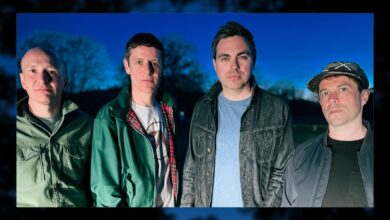Tears for Fears review, The Tipping Point: Boldly looking into the eye of our stormy world

“Cry like a siren!” exhorts Roland Orzabal, halfway through Tears for Fears’ first album in 17 years. The phrase nails the mood of exhilarating melancholy that wails right through this barnstorming collection of new songs.
Originally formed by Orzabal and his schoolmate Curt Smith in Bath, in 1981, Tears for Fears flew the flag for the more soulful side of the neon decade’s new wave synth-pop scene. Their hits filtered childhood trauma (“Mad World”, 1982), Cold War anxiety (“Everybody Wants to Rule The World”, 1985) and frustration with Thatcherite politics (“Sowing the Seeds of Love”, 1989) through simple-but-strange melodies, delivered with smooth grandeur. They released three albums then split, acrimoniously, in 1991. Orzabal went on to release two more albums under the TFF name, before reconciling with Smith in 2000 and releasing the solid Everybody Loves a Happy Ending in 2004.
The Tipping Point billows with the widescreen ambitions of the band’s foundational decade. It opens with a campfire cowboy strum of “No Small Thing”, which steadily and stealthily ups its game. Percussion mounts, along with reverb and a guitar part that leaves camp, saddles up and heads for the heat-hazy horizon. Across the next nine tracks they deliver pounding pop thrills and arena-sized catharsis, in a style that refines their distinctive sound instead of pimping it up, Noughties style.
High points include the throbbing, synth-rock of “My Demons” (“My demons don’t get out that much”) and the gorgeously jazzy “Please Be Happy”, which appears to be about Orzabal’s first wife, who died in 2017 after a long struggle with mental health and addiction. “Please don’t worry/ Cos the world won’t break apart as easy/ As the glass/ You dropped and smashed/ When you tried to climb the stairs,” he sings. The exquisite heartbreak in the melody swoops and swirls. It dips into a backstreet brass blues before lifting you back up. “Stay”, meanwhile, was written as a way for Smith to work out whether to quit the band, as Orzabal took his grief out on him: “Are we young enough to play the game?/ Old enough to know?/ Damned if I do/ Damned if I know…”
The album bounces between themes of personal pain and the stresses of wider society. So the agony and devotion of “Please Be Happy” is balanced by more outward looking songs, such as the patriarchy-demolishing “Break the Man”. “Rivers of Mercy” rides on a bass groove full of solace and seems to address the pandemic: “Bring out the dead tonight/ And bathe them in your sacred light.” Many listeners will relate the outpouring of rage and the yearning for faith expressed on the trippy “Master Plan”, which nods hazily to The Beatles’ “Because”.
The title song explores the boundaries between public and private spheres, as the band ask, “Will you let them out?/ Will you let them in?/ Will you ever know when it’s the tipping point?” It feels like the perfect time for these boldly vulnerable musicians to return and look into the eye of our stormy world.





